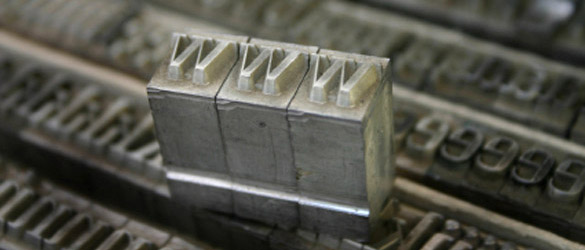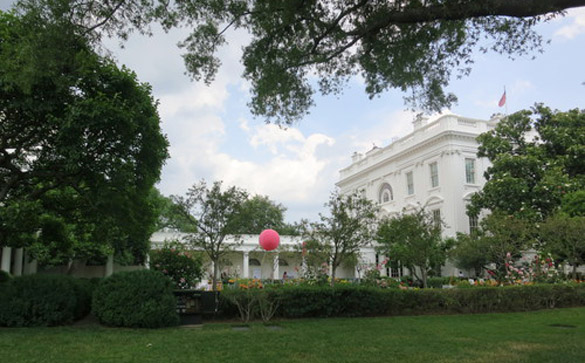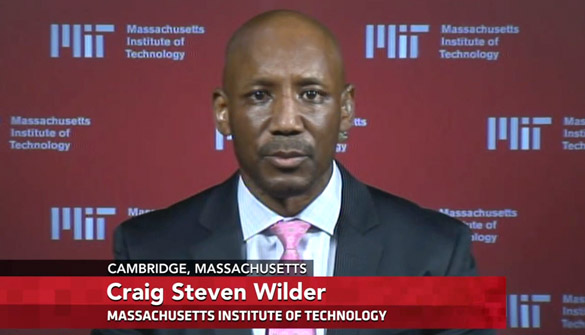MIT SHASS In the Media
Summer 2014

Recent media publications, interviews, and
broadcast appearances by MIT's SHASS faculty
SCIENCE WRITING
Fighting a one of a kind disease | Seth Mnookin | The New Yorker
What do you do if your child has a condition that is new to science?" In this essay, Mnookin, co-director of the Graduate Program in Science Writing explores how social media is affecting approaches to medical research.
Article in The New Yorker | Audio interview on WBUR
A Creole solution for Haiti's Woes | Michel DeGraff and Molly Ruggles
MIT Professor of Linguistics DeGraff and his co-author Molly Ruggles make the case for Haitian children learning in Kreyol — the language that 95% of Haitians speak — in order to empower and accelerate economic and political progress in Haiti.
Op-Ed at the New York Times
The Inequality Piketty Didn't Examine: It Starts in Womb in U.S.
Equalizing the distribution of human capital through improving literacy and developing math and cognitive skills offers a more immediate way to chip away at, though not solve, wealth inequality, Robert Solow, a 1987 Nobel laureate and an MIT professor emeritus in economics, said in an interview.
Interview at Bloomberg News
Cutting the Poor Out of Welfare
This commentary by Thomas B. Edsall includes analysis by MIT economist David Autor that "the decline over the past 35 years in “the employment/population rates of high-school graduates, and to a greater degree, high school dropout males,” is due in large part “to falling labor demand, falling job opportunities and falling real wages for low-skill males.” Autor shares the concerns of conservatives over the “damage to family structure, educational investment, and health behaviors, and role modeling in poor inner cities.” But, he adds, “the problem didn’t start with culture, and cannot be fixed simply by fixing that culture, absent a substantial improvement to job opportunities for low-skill workers.”
Commentary at New York Times
Income inequality is not the biggest economic threat to women | David Autor
MIT Economist David Autor found that the median woman with a college degree earned about $23,000 more a year than a woman who terminated her education once she earned her high school diploma.
Story at The Washington Post
Is College Worth It? New Data Say Yes | David Autor
“We have too few college graduates,” says MIT Economist David Autor, who was not involved in the Economic Policy Institute's analysis. “We also have too few people who are prepared for college.” College debt may still be a real fear and hardship, but it's a relatively small cost in the long term. College grads made almost twice as much per hour in 2013 as workers without a four-year degree. And the lifetime value of a diploma is now around a half-million dollars, even after you factor in tuition.
Story at The New York Times | MSNBC segment | WGBH News
Gaming the Poor
Natasha Dow Schüll, an MIT anthropologist who has written the definitive work on gambling-machine design, notes that as gamblers deepen their immersion, they become less interested in winning itself than in simply continuing to play.
Story at the New York Times
MIT's economics dynasty
Over the past 40 or so years, MIT has developed arguably the most influential economics department in the world. How has the economics department develop so much clout? A new study, “MIT’s Rise to Prominence,” by economic historian Andrej Svorencik of the Univedersity of Mannheim in Germany, looks at how MIT’s tight, illustrious alumni network has helped its graduates catch and surpass other powerhouse economics departments.
Story at The Boston Globe
The Hand on the Lever
A decades-long battle was joined, between “freshwater economists,” at inland departments like Chicago's, and “saltwater economists,” at Berkeley, Yale, and MIT. and Yellen deplored the caricature of Keynesian economics, and it's not too much to say that she has devoted her career, in universities and in government, to setting things right.
Story at The New Yorker
Technology Provides Foreign-Language Immersion at a Distance
"The idea is for them to learn about themselves as much as they learn about the others," says Sabine Levet, a senior lecturer in French at MIT, who is a creator of the project.
Story at Chronicle of Higher Education
MIT political scientist Charles Stewart testifies at hearing on North Carolina voting law
Stewart testified that had the law been in effect in 2012, “over 30,000 African-Americans who registered during the same-day registration period would have been unable to register during that period, almost 300,000 [black] early voters would have been shoehorned into more congested early voting and Election Day voting sites, and at least 2,000 African-American voters would have had their out-of-precinct votes left uncounted.”
Story at MSNBC
What should the US do in Iraq? | Barry Posen
Audio story at On Point | Story in The Economist
Conversation with John Lienhard, Head, Abdul Latif Jameel World Water & Food Security Lab
"At MIT we have, for a number of years, been discussing topics related to the environment and sustainability. I worked with Professor Maria Zuber to survey all our activities in water, food, climate, urban planning and environmentally benign design. We identified some areas in which our capabilities were well aligned with very important problems in water and food production."
Story at Asharq Al Awsat
The fight against fake drugs
The MIT SHASS-based Abdul Latif Jameel Poverty Action Lab, which evaluates development projects, studied malaria medicines sold by pharmacies in four districts where BRAC and Living Goods work in Uganda. Before they came in, 37 percent of pharmacies sold counterfeit malaria drugs, and about 20 percent of drugs sold were fake, said David Yanagizawa-Drott, one of the authors.
New York Times
SHASS Faculty and Alumni present Public Lab projects at the White House Maker Faire
Public Lab brings artists and social scientists together with technologists, community activists and others to create citizen science projects.
Story at Public Lab | Video on the Public Lab Kitemappers project

The Public Lab's red mapping balloon at the White House Maker Faire
The Legacy Of Unlearned Lessons, And The Current Crisis in Iraq
Two major factors are being overlooked, says John Tirman. One does stem from the Bush war. The other springs from regional dynamics in which the United States has put itself in the wrong corner.
Story at WBUR
Fischer Praises Success of Dodd-Frank Since Crisis
Stanley Fischer – formerly the head of the Bank of Israel, an MIT professor and IMF first deputy managing director – was confirmed by the Senate in March. During his confirmation hearing, he said the Great Recession has meant the central bank must not only work to fulfill its dual mandate of price stability and maximum employment, but also do everything it can to maintain financial stability.
Story at U.S. News & World Report
Mowing The Grass' In Gaza: A War In The Mideast Every Four Years?
Jim Walsh, title here, says that "An especially pernicious metaphor of increasing prominence in the Israeli strategic vocabulary is 'mowing the grass.' I first encountered it some years ago in a private meeting of American and Israeli security analysts considering the problem of Iran's nuclear program."
Story at WBUR
Junot Diaz interview
Diaz continues to teach at MIT. He likes the students, who he says are better for not wanting to be novelists, unlike those in other creative writing classes. “If you think learning salsa is your future, you're going to be pretty insufferable in salsa classes.”
Story at Financial Times
Dungeons & Dragons Has Influenced a Generation of Writers
Díaz, who teaches writing at MIT, said his first novel, the Pulitzer Prize-winning “The Brief Wondrous Life of Oscar Wao,” was written “in honor of my gaming years.”
Story at The New York Times
Struggle for justice by 'Central Park 5' culminates in $40 million settlement
Jeffrey Brown talks to MIT historian Craig Steven Wilder for more on the legacy of the infamous crime.
Video story at PBS
Whose Security?
This article is by Noam Chomsky. "There is a 'received standard version,' common to academic scholarship, government pronouncements, and public discourse. It holds that the prime commitment of governments is to ensure security, and that the primary concern of the U.S. and its allies since 1945 was the Russian threat."
Story at the Huffington Post
Japan Announces a Military Shift to Thwart China
Although Asia is not yet in an outright arms race, Richard J. Samuels, director of the Center for International Studies at MIT, said Japan's move showed that it and other countries were having to think more seriously about their own security than ever before.
Story at The New York Times
Japan set for landmark easing of constitutional limits on military
"The idea of identifying specific cases is a red herring, because we never really know," said Richard Samuels, director of the MIT SHAS-based Center for International Studies. "What we need to know is whether an ally will help us."
Story at Reuters
"Iraq is not going to be a perfect place"
The 4,500 American soldiers who died in that cause, and the hundreds of billions of dollars the country spent are, in the blunt assessment of MIT Political Scientist Barry Posen, a sunk cost. Mr Posen reckons that a de facto partition is an acceptable outcome in Iraq, and that no vital interests of the sort that America should be willing to spill blood for are at stake there.
Story at The Economist
The Legacy Of Unlearned Lessons, And The Current Crisis in Iraq
Article by John Tirman. Two major factors are being overlooked. One does stem from the Bush war. The other springs from regional dynamics in which the United States has put itself in the wrong corner.
Story at WBUR
We Can Do Better For Mothers: 3 Ways To Shore Up Financial Security
The author cites MIT economist James Poterba, who found a "virtual absence of financial wealth" among half of the so-called young elderly and a reluctance to draw down housing equity, especially early in retirement.
Story at the Huffington Post
Alibaba Recruits Users to Identify China's Polluted Waters: Tech
Alibaba can also tell its users they're more than just customers, said Ethan Zuckerman, director of the Center for Civic Media at MIT.
Story at Bloomberg Businessweek
How Alibaba Went from a Band of Thieves to a Huge E-Commerce Company
"I called Edward Flemming, a professor of linguistics at MIT, to get his two cents. The simple answer: no, not really. One big problem with the word "Alibaba" is that certain languages don't understand or use the consonants in it."
Story at Slate
Audio Interview with Jim Walsh | North Korea Steps Up Nuclear Activity Ahead Of Obama Visit
"So whether the future is Friday or the Friday after that or next month, I think it's going to happen.
Story at WBUR Boston
Economists Slam the War on Drugs
The fourth chapter, “Why Is Strict Prohibition Collapsing?,” written by Daniel Mejia, an associate economics professor in Colombia, and Pascual Restrepo, a Ph.D. candidate at MIT, shows the dark side of Caulkins's argument.
Story at the Daily Beast
Best Four Years
A new analysis by the Economic Policy Institute in Washington found that the wage difference between college graduates and non-degree holders is at a record. People with college degrees make 98 percent more an hour than people without, up from 89 percent just five years ago. MIT economist David Autor found that not getting a college degree costs someone about half a million dollars.
Story at Daily Beast

